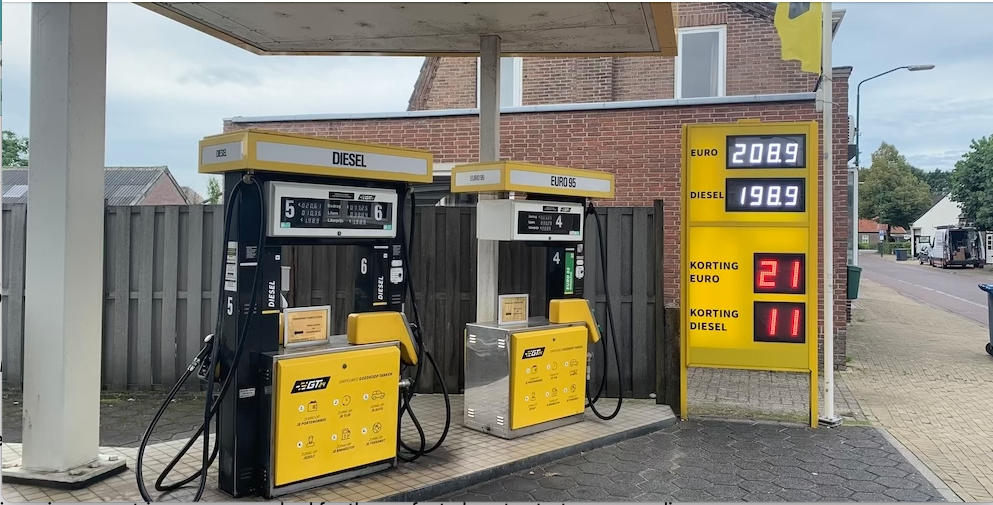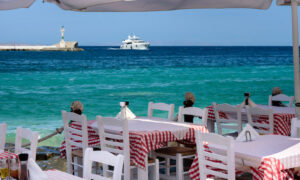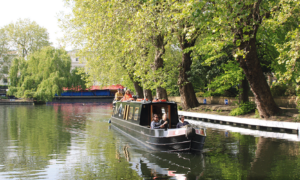People ask me all the time, “How did you end up in the Netherlands?” It’s a long story, but we actually toured Europe in 2015 as we looked at the relative advantages of innovation hubs – Berlin, Amsterdam, Vienna, etc. – in various countries as we searched for the perfect place to start a new media company.
Along the way, we learned there are a few countries in Europe that are perfect, chief among these being the Netherlands, with its perfect highways, its perfect infrastructure, perfect medical care and its (nearly) perfect public safety.
All these years later, it’s hard to believe the Netherlands checked our “affordable” box. But it did because compared to Switzerland and Luxembourg, it was and still is.
Alas, if you want perfect, you have to pay for it, and boy do we expats in the Netherlands pay for it.
(This is coming from someone whose company just booked an unexpected 15,000 euro tax bill.)
Gas tax
The latest budget shock is the excise tax on gas, which sent it to as high as 2.15 euros per liter at our neighborhood gas station. (The price for Euro 95 bounces between 2.08 and 2.15.) In January, 2024, the price of gasoline will rise even more – by 21 cents per liter. Compare that to the United States, where people are up in arms over $3 per gallon gas, which works out to about 75 euro cents per liter.
The 1 July fuel price bump was courtesy of a Dutch excise tax that was suspended in the early days of the Ukraine War, when Russia tried to cut off supply.
Is gasoline on its way to 3 euros per liter by this time next year? It could, because in addition to the excise tax, petroleum is nearing $100 per barrel, up 30 percent since June as Russia cuts production.
So, where does all the money go from that excise tax? The Netherlands as a whole is running a budget surplus (that’s right, surplus), but barely.
That surplus is dwindling rapidly because the kingdom (that’s right, the Netherlands is a constitutional monarchy) has several obligations:
• The Netherlands will spend about 12 billion euros in restitution to the people of Groningen, where years of natural gas extraction caused earthquakes.
• Taking in Ukrainian refugees has cost more than initially projected.
• Higher central bank interests rates means the Dutch government is spending more to borrow and service its debt.
Driving to Belgium and Germany to save on gas
Now this gets weird because in the less perfect countries around us (Germany and Belgium), gasoline is still about 1.80 euros per liter. In macroeconomic terms, we now have ourselves a simple fuel price arbitrage, taking advantage of a difference in prices in two or more markets. As you might imagine, Dutch gas station owners in the border areas are less than thrilled to see their business go to neighboring countries.
We also have the opposite of what Dutch environmental officials are trying to accomplish … getting people to drive less and use public transportation more in the effort to reduce emissions. But, hey, what are you going to do?
Deloitte has a detailed report about Dutch taxes, which you can see here.
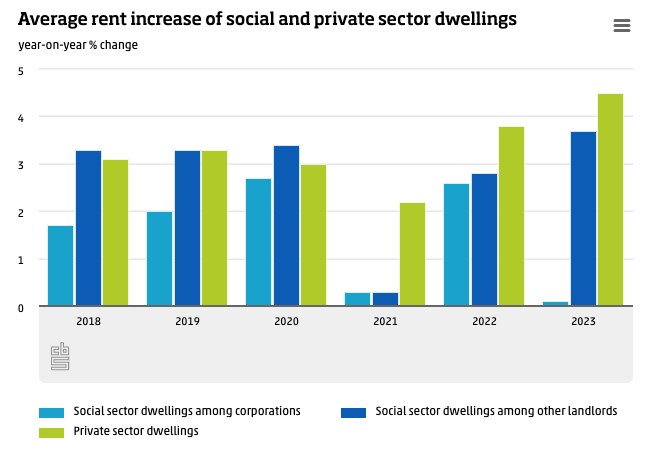
We’re making more … and spending more
Gas is just one expense that’s on its way up:
• Rents across the Netherlands are also rising, and again, we have a macroeconomic phenomenon at work. Over-bidding – offering to pay more than the asking price or rental rate – is an indicator of an incredibly tight housing market and has jumped from the residential real estate market to rentals. Now, social housing has not gotten more expensive, but there’s not nearly enough of it. Private sector rents increased 4.5 percent on average this year, up from 3.8 percent in 2022, according the CBS, the national Dutch statistics bureau.
And here’s how it happens: On average, rents increase by 10.9 percent for the new tenant when the old tenant leaves, which is more than in 2022 (9.7 percent). Since 2014, rents of houses/apartments with a change of tenant have not risen as much as in 2023, according to CBS. Which shows serious pressure on housing.
Rents are rising fastest in Amsterdam, followed by Den Haag, Rotterdam and Utrecht.
The good news is, food prices have stabilized.
The really good news is, wages are up and rising. The salaries of call center workers, for example, just got a 16-percent boost, according to the FNV Labor Union representing about 40,000 of them. According to the Netherlands Bureau for Economic Policy Analysis, the average gross income for a person working in the Netherlands in 2023 is 34,260 euros per year or 2,855 euros per month. For 2024-2025, this amount is projected to increase to 41,000 annually. That’s about a 20-percent increase, huge by world standards. But it’s in some part being driven by the dominance of the Netherlands’ semiconductor industry and companies such as ASML and NXP.
Of course, this is a country where many highly skilled internationals and entrepreneurs fall into a 50-percent tax bracket.
The best news is, the Netherlands is still a relative bargain compared to the rest of Europe.
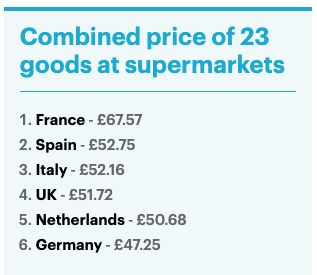
The Daily Mail, of all media, has a pretty well-researched post about a study of consumer prices, one that shows Dutch groceries are a relative bargain. And a shocker here … cheese is cheapest in the Netherlands at about 1.75 euros for we’re assuming 250 grams, though the post doesn’t state the amount.
Now, about that tax bill.
We personally have learned a lot of lessons including how to structure our business for the optimal Dutch corporate tax rate, which is about 26 percent for most companies – competitive globally. (Italy and Germany are both higher.) What we did wrong was register with the KVK as a partnership. Now, we are registered as the Dutch equivelant of a C Corp in the United States, with a big reduction in tax rate coming next year.
Meanwhile, this year we’re taking trains and buses and leaving the Honda in the driveway.
Co-CEO of Dispatches Europe. A former military reporter, I'm a serial expat who has lived in France, Turkey, Germany and the Netherlands.


